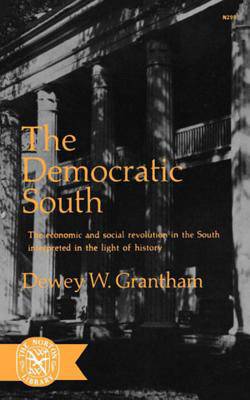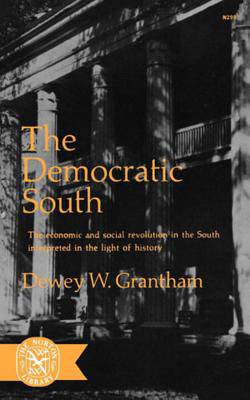
Door een staking bij bpost kan je online bestelling op dit moment iets langer onderweg zijn dan voorzien. Dringend iets nodig? Onze winkels ontvangen jou met open armen!
- Afhalen na 1 uur in een winkel met voorraad
- Gratis thuislevering in België vanaf € 30
- Ruim aanbod met 7 miljoen producten
Door een staking bij bpost kan je online bestelling op dit moment iets langer onderweg zijn dan voorzien. Dringend iets nodig? Onze winkels ontvangen jou met open armen!
- Afhalen na 1 uur in een winkel met voorraad
- Gratis thuislevering in België vanaf € 30
- Ruim aanbod met 7 miljoen producten
Zoeken
Omschrijving
The seeds of the new political developments in the South, where for so many years the Democratic party found solid support, were sewn way back. Although most of the former Confederate states have consistently declared their devotion to "states rights" and home rule, traditionally represented there by the Democratic party, Southern society and point-of-view has been rapidly changing during the last century. Professor Grantham interprets the economic and social revolution now under way in the South as the phenomenal climax of deep-rooted and historic developments in the region and the nation as a whole. Not denying the fundamental conservatism of the South, he has discovered that Southern politics is far more than one of sectionalism and segregation, that the politics of individual states vary enormously, and that the progressive movement in the South may reflect far more than we generally realize the attitudes and aspirations of Americans as a whole. He skillfully delineates the forces that have encouraged the South's attachment to the Democratic party and indicates how increasingly differentiated economic and social pattern will shape the future.
Specificaties
Betrokkenen
- Auteur(s):
- Uitgeverij:
Inhoud
- Aantal bladzijden:
- 128
- Taal:
- Engels
Eigenschappen
- Productcode (EAN):
- 9780393002997
- Verschijningsdatum:
- 1/03/1965
- Uitvoering:
- Paperback
- Formaat:
- Trade paperback (VS)
- Afmetingen:
- 127 mm x 203 mm
- Gewicht:
- 145 g

Alleen bij Standaard Boekhandel
+ 53 punten op je klantenkaart van Standaard Boekhandel
Beoordelingen
We publiceren alleen reviews die voldoen aan de voorwaarden voor reviews. Bekijk onze voorwaarden voor reviews.











